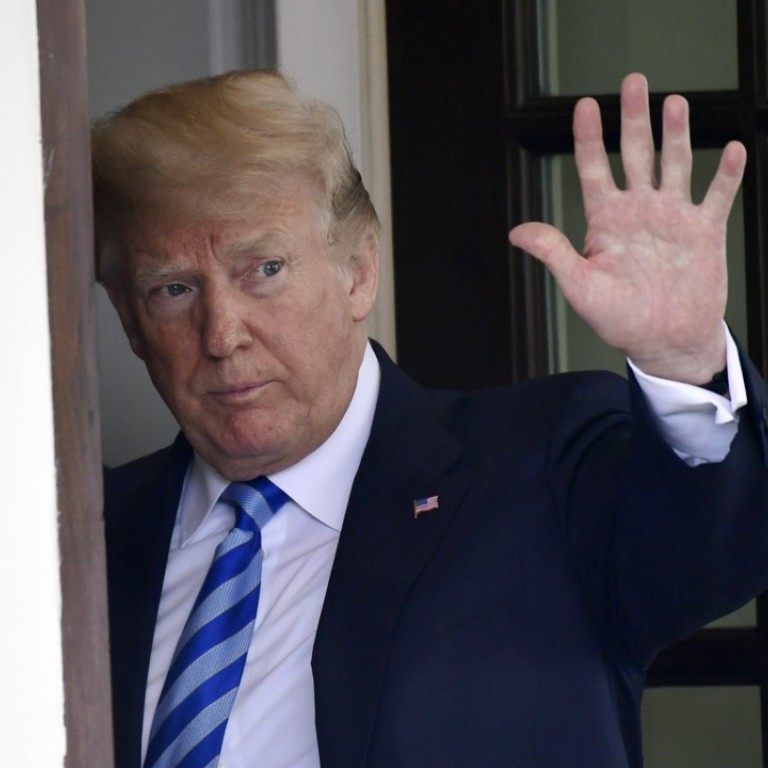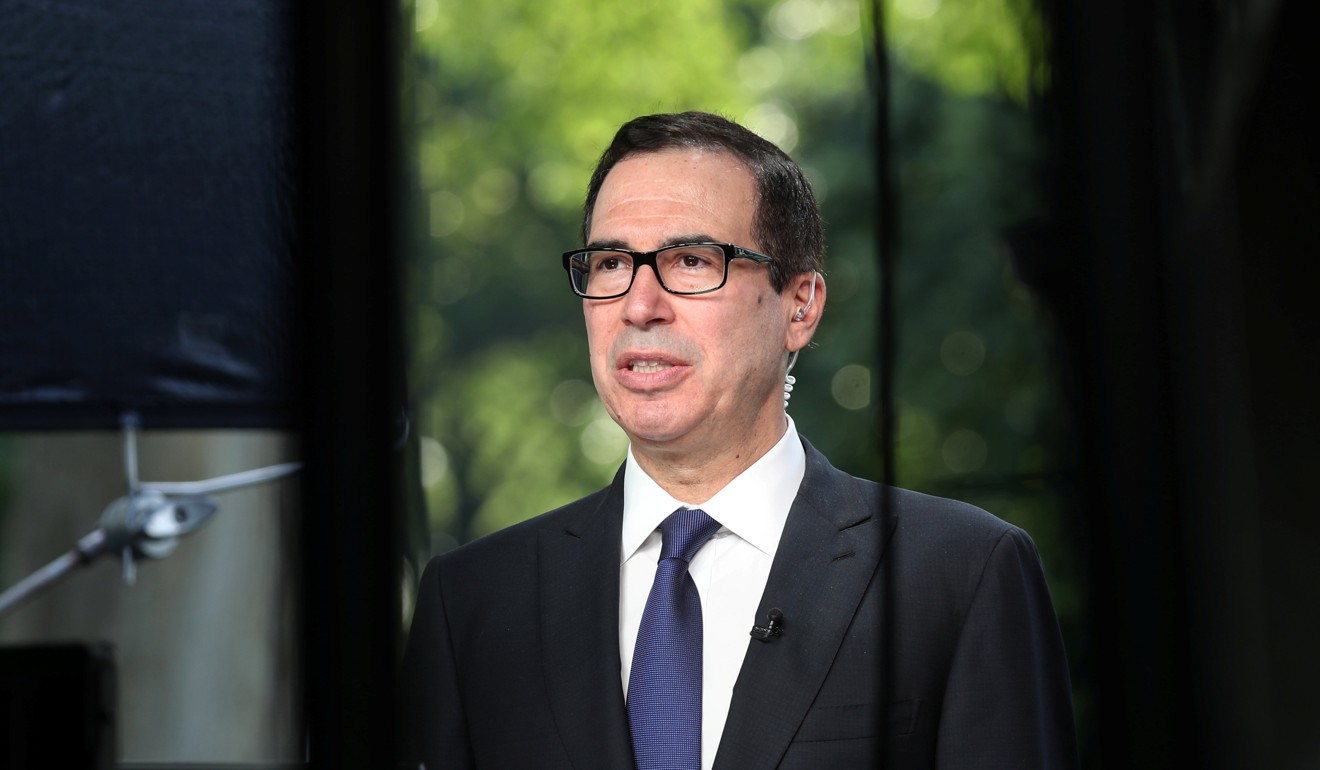
Donald Trump claims China agreed to buy ‘as much as our farmers can produce’ but details of US trade deal remain elusive
US Treasury chief Mnuchin says Commerce Secretary will visit Beijing next week to secure framework agreements
US President Donald Trump claimed on Monday that China had agreed to buy “massive amounts” of American agricultural products – “practically as much as our farmers can produce” – as well as reducing trade barriers and tariffs.
Despite the president’s comments on Twitter, few details have emerged about the agreement the world’s two largest economies reached to avoid an all-out trade war following talks in Washington last week.
On Saturday China was quick to deny claims that it had agreed to reduce the trade deficit between the sides by “at least” US$200 billion, saying that it had agreed to “substantially reduce” America’s trade deficit rather than discussing a specific figure.
On Monday American officials sought to dismiss suggestions that China had secured a truce without making specific commitments.
Treasury Secretary Steven Mnuchin said the talks has yielded tangible benefits, adding that Commerce Secretary Wilbur Ross would make a follow-up visit to Beijing next week to put a framework agreement in place.
“Secretary Ross has to go over and turn that into a signed piece of paper with companies,” Mnuchin told reporters at the White House.
“This is not a government-to-government purchase order, but we have an agreement with them as to what will be executed.”
On Sunday, Mnuchin told Fox News that Washington had “specific targets, I’m not gonna publicly disclose what they are”.
Chinese officials remained similarly tight-lipped and few details of the agreement have emerged beyond a vaguely worded joint statement.
In an interview with Hong Kong-based television Phoenix TV, vice-premier Liu He, who led the Chinese delegation, said the biggest outcome of the talks was that the two sides had reached a consensus not to start a trade war.
He added that they would strengthen trade-in sectors such as energy, agriculture, medical care, hi-tech products and in the financial sector without elaborating further.
The lack of details over the agreements suggest the two sides are yet to finalise the primary agreements, according to Lu Xiang, a researcher with the Chinese Academy of Social Sciences, a think tank with the central government, according to Reuters.
Chinese purchases of energy from the US would require additional investment in America’s infrastructure, but America would be reluctant to make this commitment without “detailed promises from the Chinese side and mutual trust”.
Lu added that more details could be expected after Ross’s trip to Beijing, when the two sides could finalise deals about energy purchases.
Mnuchin told Fox News that the two sides were looking to double China’s energy purchases from America.
He added that Ross’s trip to Beijing is also expected to confirm China’s purchases in US agriculture to increase by 35 to 40 per cent this year alone.
Mnuchin also said Beijing had pledged to lower tariffs, something that was not included in the joint statement.
“We have very good framework agreements … also about lowering tariffs, China has promised to lower tariffs on many things,” he said.
Lu said he believed discussions about Chinese tariffs had not been disclosed as it would affect trade between China and other countries as well.
Yuan Gangming, an economics professor at Beijing’s Tsinghua Universities, said he believed the two sides had yet to agree on a figure for the reduction in the trade deficit.
“I believe the size of the cut is still not agreed on, but the two sides have reached a consensus on the direction of opening China’s imports. They could leave it to the technocrats to fix the numbers .”

As well as the secrecy surrounding the initial agreements, the agreement stimulated a wave of nationalistic sentiment in Chinese state media.
An article in the party mouthpiece People’s Daily on Monday dismissed suggestions that the agreements involved “unilateral concessions” by China.
It argued that the promises to Washington went no further than Xi Jinping’s earlier pledges to open up the Chinese market.
“Xi Jinping said at the Boao Forum [in April] that increasing access to Chinese markets, opening up the financial sector, the automobile industry, lower tariffs for cars, improving the investment environment, protection of intellectual property … were all set directions in China’s reform,” said the article.“Pledges to the US have not exceeded this scope,” it added.
Public opinion in China is highly sensitive to any appearance of making concessions to foreign governments.
For several years Zhu Rongji, China’s premier when the country joined the World Trade Organisation in 2001, faced sustained attacks from some groups at home, who referred to him as a traitor for lifting multiple restrictions on foreign businesses.
Additional reporting by Robert Delaney

